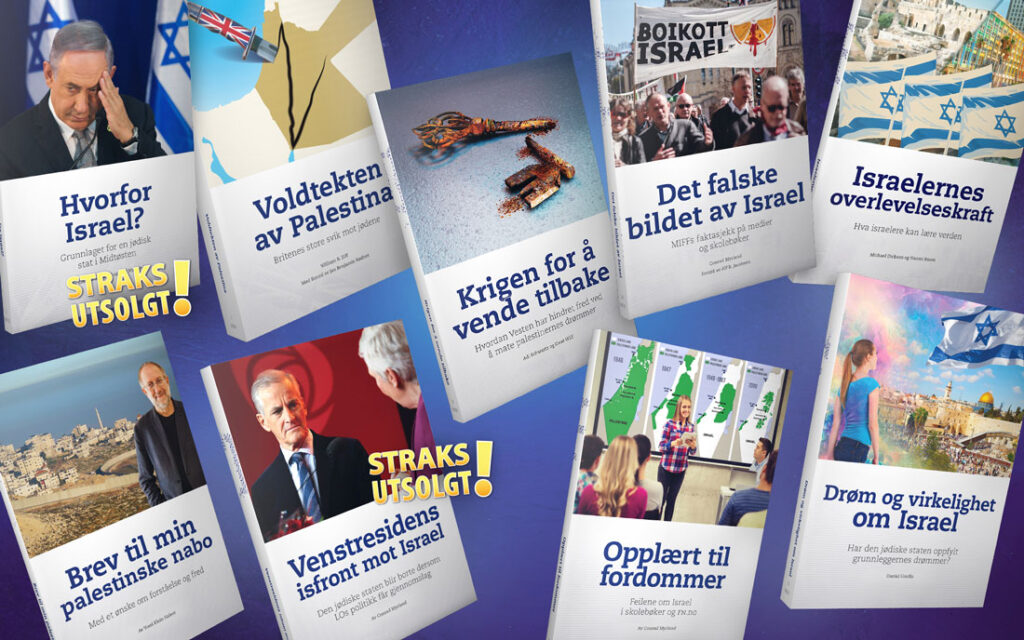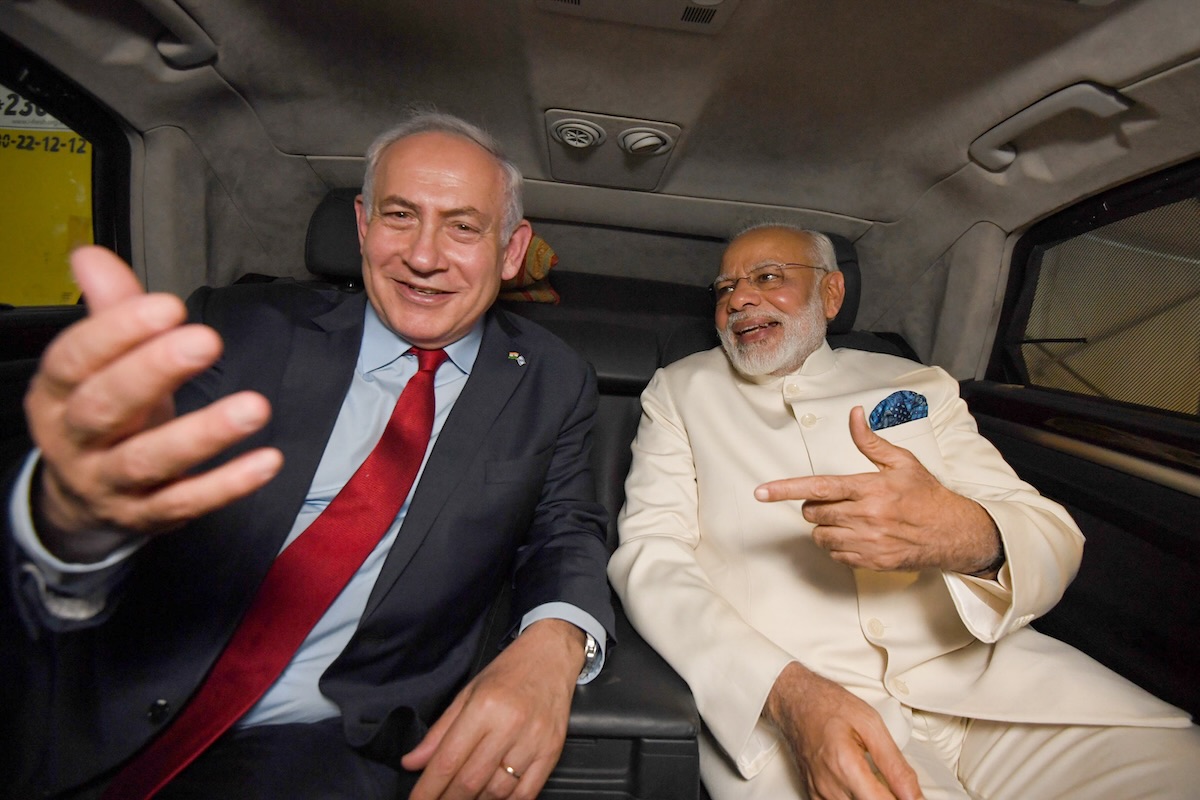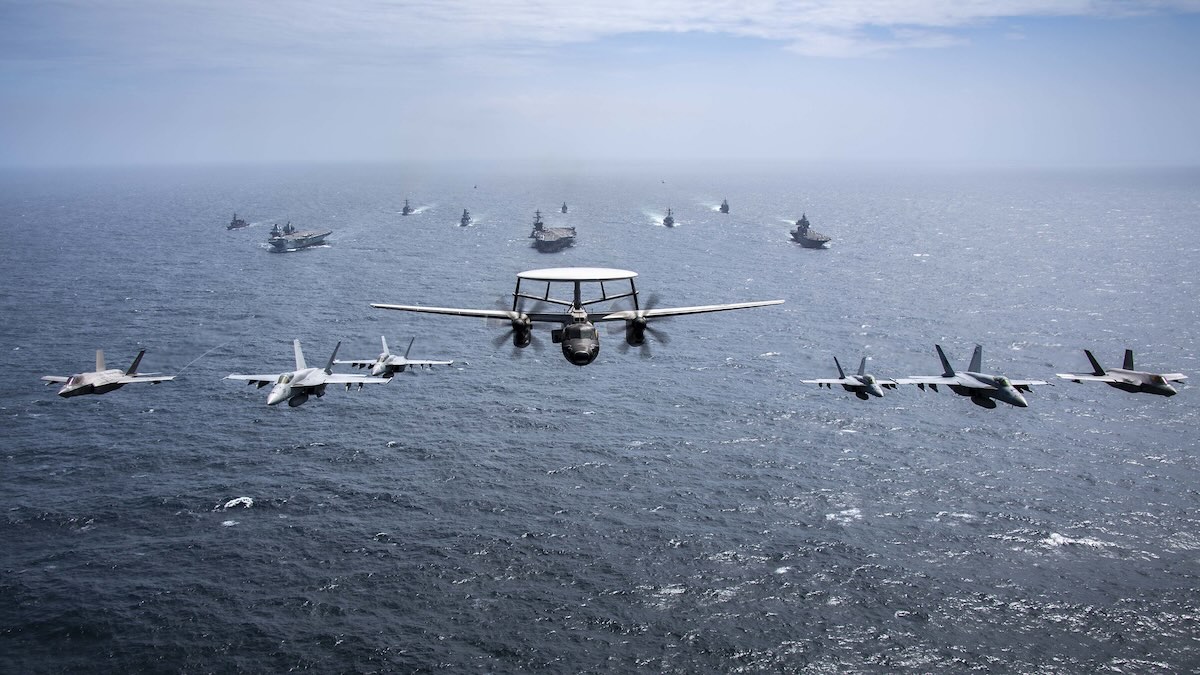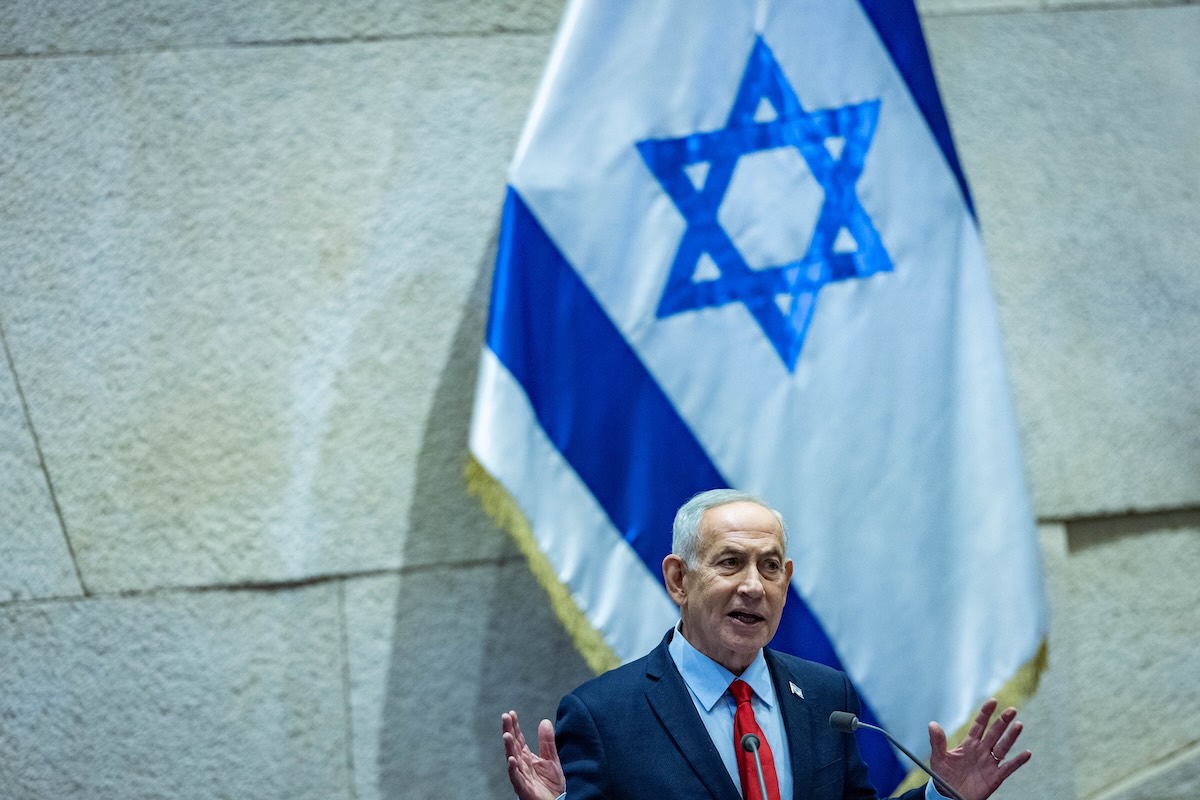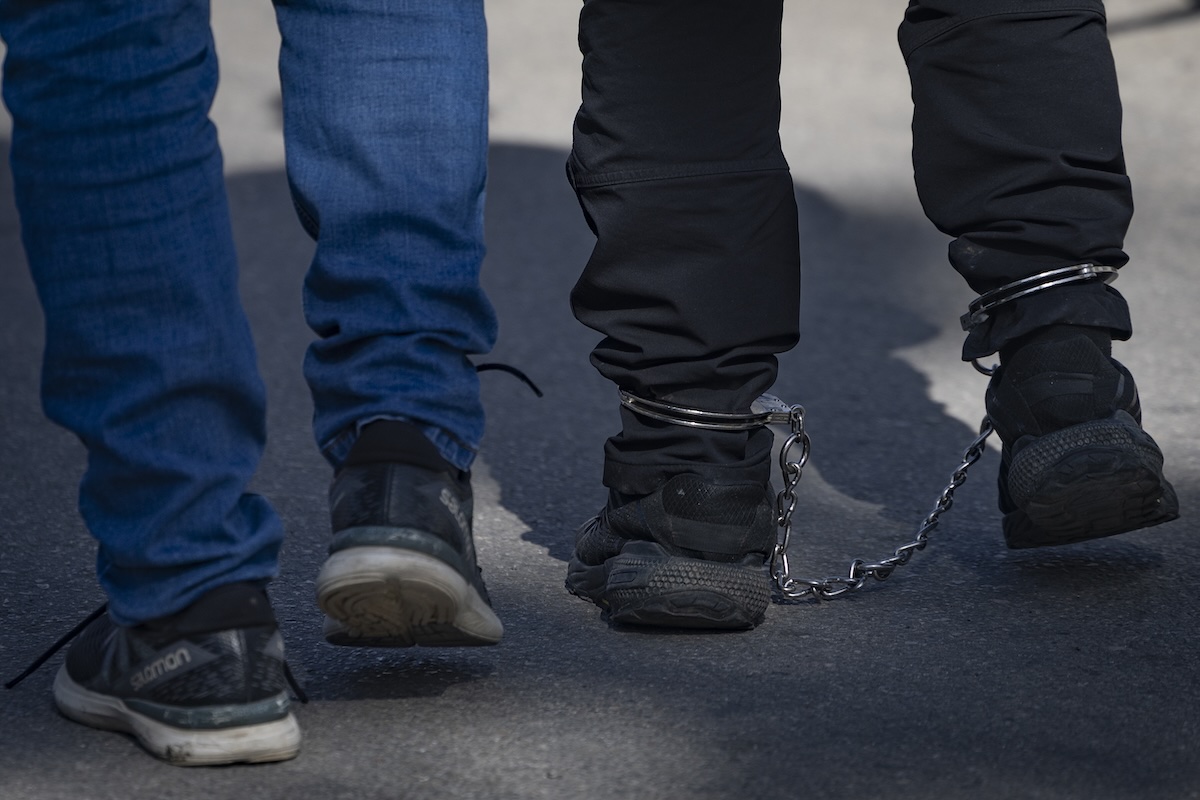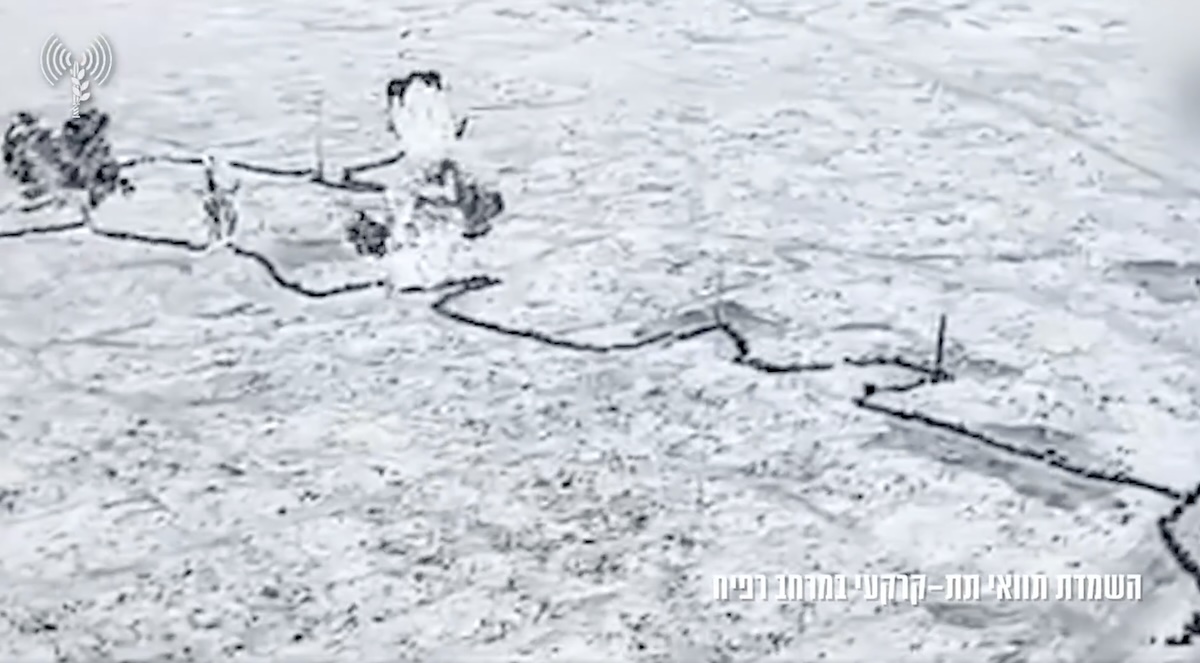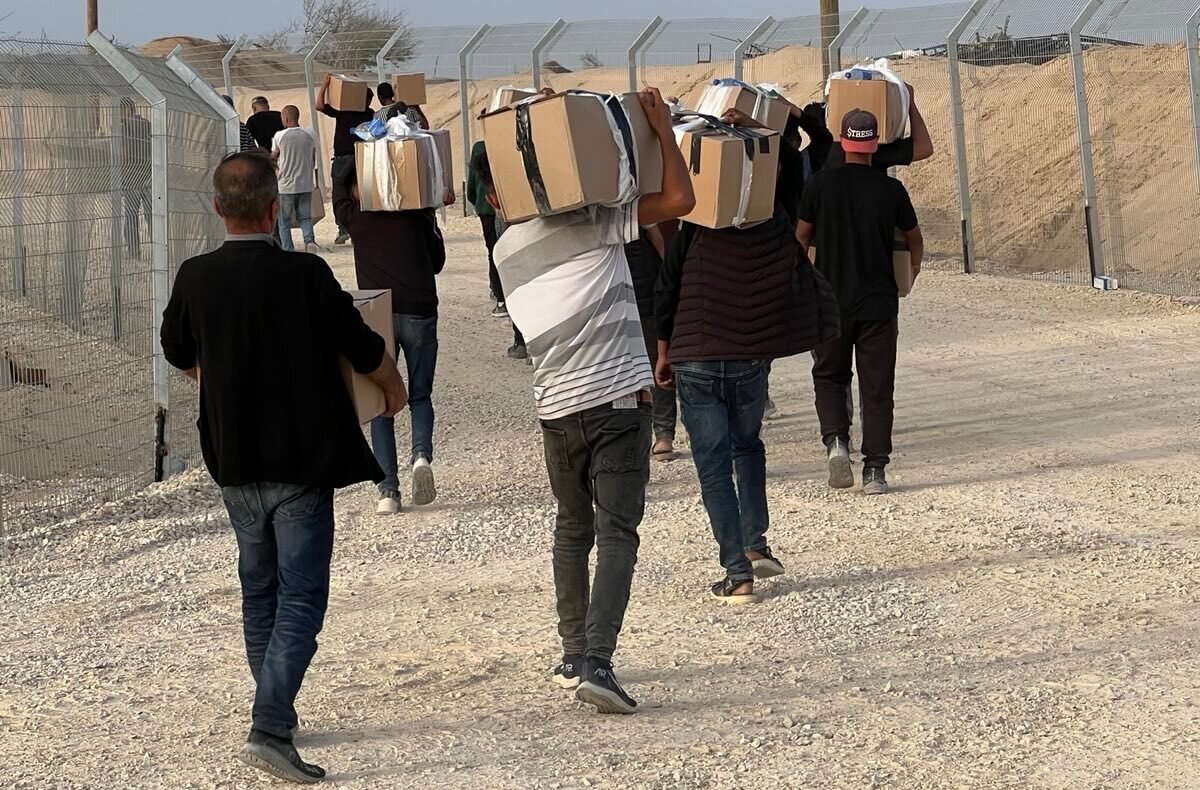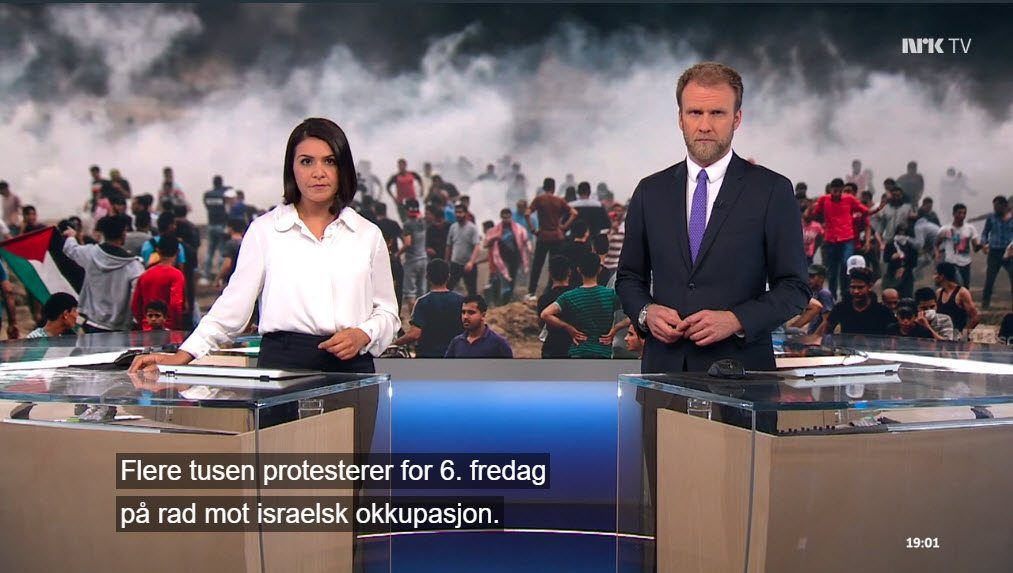Kjerneinnholdet i Camp David-avtalen
Skaper rammeverket for fredsavtalen mellom Israel og Egypt. Tar for seg Israels tilbaketrekning fra Sinai – samt regulerer demilitariserte soner, styrkekonsentrasjoner og observatørstyrker i området
Under følger kort norsk bakgrunn og tekst i engelsk oversettelse.
Kilde er Ariel Center for Policy Research.
Bakgrunn
Etter tolv dager med hemmelige forhandlinger på den amerikanske presidentens feriested, Camp David, kunne den israelsk-egyptiske avtalen bli signert i Det hvite hus 17. september 1978. Camp David-avtalen tar for seg, i tillegg til forholdene som regulerer forholdet mellom Israel og Egypt, en plan for å etablere selvstyre på Vestbredden og Gaza-stripen. I ettertid ble imidlertid denne siste del av avtalen tolket svært forskjellig av Israel, Egypt og USA.
CAMP DAVID ACCORDS
September 17, 1978
THE CAMP DAVID ACCORDS:
The Framework for Peace in the Middle East
Muhammad Anwar al-Sadat, President of the Arab Republic of Egypt, and Menachem Begin, Prime Minister of Israel, met with Jimmy Carter, President of the United States of America, at Camp David from September 5 to September 17, 1978, and have agreed on the following framework for peace in the Middle East. They invite other parties to the Arab-Israel conflict to adhere to it.
Preamble
The search for peace in the Middle East must be guided by the following:
- The agreed basis for a peaceful settlement of the conflict between Israel and its neighbors is United Nations Security Council Resolution 242, in all its parts.
- After four wars during 30 years, despite intensive human efforts, the Middle East, which is the cradle of civilization and the birthplace of three great religions, does not enjoy the blessings of peace. The people of the Middle East yearn for peace so that the vast human and natural resources of the region can be turned to the pursuits of peace and so that this area can become a model for coexistence and cooperation among nations.
- The historic initiative of President Sadat in visiting Jerusalem and the reception accorded to him by the parliament, government and people of Israel, and the reciprocal visit of Prime Minister Begin to Ismailia, the peace proposals made by both leaders, as well as the warm reception of these missions by the peoples of both countries, have created an unprecedented opportunity for peace which must not be lost if this generation and future generations are to be spared the tragedies of war.
- The provisions of the Charter of the United Nations and the other accepted norms of international law and legitimacy now provide accepted standards for the conduct of relations among all states.
- To achieve a relationship of peace, in the spirit of Article 2 of the United Nations Charter, future negotiations between Israel and any neighbor prepared to negotiate peace and security with it are necessary for the purpose of carrying out all the provisions and principles of Resolutions 242 and 338.
- Peace requires respect for the sovereignty, territorial integrity and political independence of every state in the area and their right to live in peace within secure and recognized boundaries free from threats or acts of force. Progress toward that goal can accelerate movement toward a new era of reconciliation in the Middle East marked by cooperation in promoting economic development, in maintaining stability and in assuring security.
- Security is enhanced by a relationship of peace and by cooperation between nations which enjoy normal relations. In addition, under the terms of peace treaties, the parties can, on the basis of reciprocity, agree to special security arrangements such as demilitarized zones, limited armaments areas, early warning stations, the presence of international forces, liaison, agreed measures for monitoring and other arrangements that they agree are useful.
Framework
Taking these factors into account, the parties are determined to reach a just, comprehensive, and durable settlement of the Middle East conflict through the conclusion of peace treaties based on Security Council resolutions 242 and 338 in all their parts. Their purpose is to achieve peace and good neighborly relations. They recognize that for peace to endure, it must involve all those who have been most deeply affected by the conflict. They therefore agree that this framework, as appropriate, is intended by them to constitute a basis for peace not only between Egypt and Israel, but also between Israel and each of its other neighbors which is prepared to negotiate peace with Israel on this basis. With that objective in mind, they have agreed to proceed as follows:
West Bank and Gaza
- Egypt, Israel, Jordan and the representatives of the Palestinian people should participate in negotiations on the resolution of the Palestinian problem in all its aspects. To achieve that objective, negotiations relating to the West Bank and Gaza should proceed in three stages:
- Egypt and Israel agree that, in order to ensure a peaceful and orderly transfer of authority, and taking into account the security concerns of all the parties, there should be transitional arrangements for the West Bank and Gaza for a period not exceeding five years. In order to provide full autonomy to the inhabitants, under these arrangements the Israeli military government and its civilian administration will be withdrawn as soon as a self-governing authority has been freely elected by the inhabitants of these areas to replace the existing military government. To negotiate the details of a transitional arrangement, Jordan will be invited to join the negotiations on the basis of this framework. These new arrangements should give due consideration both to the principle of self-government by the inhabitants of these territories and to the legitimate security concerns of the parties involved.
- Egypt, Israel, and Jordan will agree on the modalities for establishing elected self-governing authority in the West Bank and Gaza. The delegations of Egypt and Jordan may include Palestinians from the West Bank and Gaza or other Palestinians as mutually agreed. The parties will negotiate an agreement which will define the powers and responsibilities of the self-governing authority to be exercised in the West Bank and Gaza. A withdrawal of Israeli armed forces will take place and there will be a redeployment of the remaining Israeli forces into specified security locations. The agreement will also include arrangements for assuring internal and external security and public order. A strong local police force will be established, which may include Jordanian citizens. In addition, Israeli and Jordanian forces will participate in joint patrols and in the manning of control posts to assure the security of the borders.
When the self-governing authority (administrative council) in the West Bank and Gaza is established and inaugurated, the transitional period of five years will begin. As soon as possible, but not later than the third year after the beginning of the transitional period, negotiations will take place to determine the final status of the West Bank and Gaza and its relationship with its neighbors and to conclude a peace treaty between Israel and Jordan by the end of the transitional period. These negotiations will be conducted among Egypt, Israel, Jordan and the elected representatives of the inhabitants of the West Bank and Gaza. Two separate but related committees will be convened, one committee, consisting of representatives of the four parties which will negotiate and agree on the final status of the West Bank and Gaza, and its relationship with its neighbors, and the second committee, consisting of representatives of Israel and representatives of Jordan to be joined by the elected representatives of the inhabitants of the West Bank and Gaza, to negotiate the peace treaty between Israel and Jordan, taking into account the agreement reached in the final status of the West Bank and Gaza. The negotiations shall be based on all the provisions and principles of UN Security Council Resolution 242. The negotiations will resolve, among other matters, the location of the boundaries and the nature of the security arrangements. The solution from the negotiations must also recognize the legitimate right of the Palestinian peoples and their just requirements. In this way, the Palestinians will participate in the determination of their own future through:
- The negotiations among Egypt, Israel, Jordan and the representatives of the inhabitants of the West Bank and Gaza to agree on the final status of the West Bank and Gaza and other outstanding issues by the end of the transitional period.
- Submitting their agreements to a vote by the elected representatives of the inhabitants of the West Bank and Gaza.
- Providing for the elected representatives of the inhabitants of the West Bank and Gaza to decide how they shall govern themselves consistent with the provisions of their agreement.
- Participating as stated above in the work of the committee negotiating the peace treaty between Israel and Jordan.
- All necessary measures will be taken and provisions made to assure the security of Israel and its neighbors during the transitional period and beyond. To assist in providing such security, a strong local police force will be constituted by the self-governing authority. It will be composed of inhabitants of the West Bank and Gaza. The police will maintain liaison on internal security matters with the designated Israeli, Jordanian, and Egyptian officers.
- During the transitional period, representatives of Egypt, Israel, Jordan, and the self-governing authority will constitute a continuing committee to decide by agreement on the modalities of admission of persons displaced from the West Bank and Gaza in 1967, together with necessary measures to prevent disruption and disorder. Other matters of common concern may also be dealt with by this committee.
- Egypt and Israel will work with each other and with other interested parties to establish agreed procedures for a prompt, just and permanent implementation of the resolution of the refugee problem.
Egypt-Israel
- Egypt-Israel undertake not to resort to the threat or the use of force to settle disputes. Any disputes shall be settled by peaceful means in accordance with the provisions of Article 33 of the UN Charter.
- In order to achieve peace between them, the parties agree to negotiate in good faith with a goal of concluding within three months from the signing of the Framework a peace treaty between them while inviting the other parties to the conflict to proceed simultaneously to negotiate and conclude similar peace treaties with a view the achieving a comprehensive peace in the area. The Framework for the Conclusion of a Peace Treaty between Egypt and Israel will govern the peace negotiations between them. The parties will agree on the modalities and the timetable for the implementation of their obligations under the treaty.
Associated Principles
- Egypt and Israel state that the principles and provisions described below should apply to peace treaties between Israel and each of its neighbors – Egypt, Jordan, Syria and Lebanon.
- Signatories shall establish among themselves relationships normal to states at peace with one another. To this end, they should undertake to abide by all the provisions of the UN Charter. Steps to be taken in this respect include: full recognition; abolishing economic boycotts; guaranteeing that under their jurisdiction the citizens of the other parties shall enjoy the protection of the due process of law.
- Signatories should explore possibilities for economic development in the context of final peace treaties, with the objective of contributing to the atmosphere of peace, cooperation and friendship which is their common goal.
- Claims commissions may be established for the mutual settlement of all financial claims.
- The United States shall be invited to participate in the talks on matters related to the modalities of the implementation of the agreements and working out the timetable for the carrying out of the obligations of the parties.
- The United Nations Security Council shall be requested to endorse the peace treaties and ensure that their provisions shall not be violated. The permanent members of the Security Council shall be requested to underwrite the peace treaties and ensure respect or the provisions. They shall be requested to conform their policies and actions with the undertaking contained in this Framework.
For the Government of Israel: Menachem Begin
For the Government of the Arab Republic of Egypt: Muhammed Anwar al-Sadat
Witnessed by: Jimmy Carter, President of the United States of America
FRAMEWORK FOR THE CONCLUSION OF A PEACE TREATY
BETWEEN EGYPT AND ISRAEL
In order to achieve peace between them, Israel and Egypt agree to negotiate in good faith with a goal of concluding within three months of the signing of this framework a peace treaty between them: It is agreed that:
- The site of the negotiations will be under a United Nations flag at a location or locations to be mutually agreed.
- All of the principles of UN Resolution 242 will apply in this resolution of the dispute between Israel and Egypt.
- Unless otherwise mutually agreed, terms of the peace treaty will be implemented between two and three years after the peace treaty is signed. The following matters are agreed between the parties:
- The full exercise of Egyptian sovereignty up to the internationally recognized border between Egypt and mandated Palestine;
- The withdrawal of Israeli armed forces from the Sinai;
- The use of airfields left by the Israelis near al-Arish, Rafah, Ras en-Naqb, and Sharm e-Sheikh for civilian purposes only, including possible commercial use only by all nations;
The right of free passage by ships of Israel through the Gulf of Suez and the Suez Canal on the basis of the Constantinople Convention of 1888 applying to all nations;
- The Strait of Tiran and Gulf of Aqaba are international waterways to be open to all nations for unimpeded and nonsuspendable freedom of navigation and overflight;
- The construction of a highway between the Sinai and Jordan near Eilat with guaranteed free and peaceful passage by Egypt and Jordan; and the stationing of military forces listed below.
Stationing of Forces
- No more than one division (mechanized or infantry) of Egyptian armed forces will be stationed within an area lying approximately 50 km. (30 miles) east of the Gulf of Suez and the Suez Canal.
- Only United Nations forces and civil police equipped with light weapons to perform normal police functions will be stationed within an area lying west of the international border and the Gulf of Aqaba, varying in width from 20 km. (12 miles) to 40 km. (24 miles).
- In the area within 3 km. (1.8 miles) east of the international border there will be Israeli limited military forces not to exceed four infantry battalions and United Nations observers.
Border patrol units not to exceed three battalions will supplement the civil police in maintaining order in the area not included above.
- The exact demarcation of the above areas will be as decided during the peace negotiations.
- Early warning stations may exist to insure compliance with the terms of the agreement. United Nations forces will be stationed:
- In part of the area in the Sinai lying within about 20 km. of the Mediterranean Sea and adjacent to the international border, and
- In the Sharm e-Sheikh area to insure freedom of passage through the Strait of Tiran; and these forces will not be removed unless such removal is approved by the Security Council of the United Nations with a unanimous vote of the five permanent members.
- After a peace treaty is signed, and after the interim withdrawal is complete, normal relations will be established between Egypt and Israel, including full recognition, including diplomatic, economic and cultural relations; termination of economic boycotts and barriers to the free movement of goods and people; and mutual protection of citizens by the due process of law.
Interim Withdrawal
Between three months and nine months after the signing of the peace treaty, all Israeli forces will withdraw east of a line extending from a point east of El-Arish to Ras Muhammad, the exact location of this line to be determined by mutual agreement.
For the Government of the Arab Republic of Egypt: Muhammed Anwar al-Sadat
For the Government of Israel: Menachem Begin
Witnessed by: Jimmy Carter, President of the United States of America

